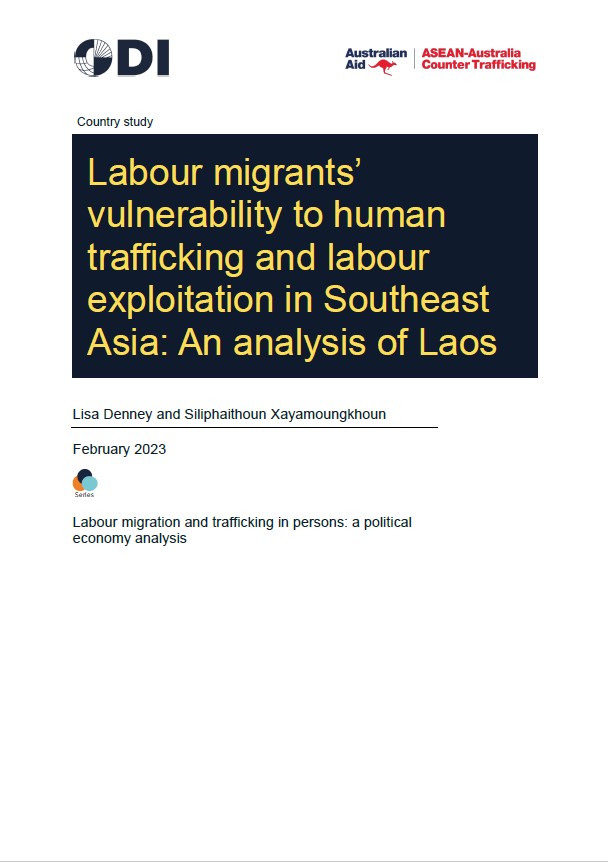
Labour migrants’ vulnerability to human trafficking and labour exploitation in Southeast Asia: An analysis of Laos
In Southeast Asia, labour migration provides many positives but can pose risks to migrants who fall victim to exploitation or trafficking in persons (TIP). Vulnerability to exploitation and TIP is due not only to lack of knowledge, skills or capacity but is also shaped by structures, institutions, power and interests. Addressing exploitation therefore requires understanding how these dimensions sustain vulnerabilities.
This paper on Laos is part of a series of ASEAN country studies seeking to understand what shapes labour migrants’ vulnerabilities to exploitation, including TIP. Laos is primarily a migrant-sending country and an estimated 900,000 Laotians lived abroad in 2019; in 2020 alone, approximately 200,000 Lao migrants returned from Thailand during COVID-19.
An analytical framework was developed to explore vulnerabilities to exploitation (including TIP) facing labour migrants at each stage of the migration cycle, complemented by a political economy approach to examine how these vulnerabilities are shaped. The study included a literature review and 26 interviews with relevant stakeholders in Laos, with the exception of representatives of government and the justice sector, who were not available for interview.
The paper is also available at ODI.org